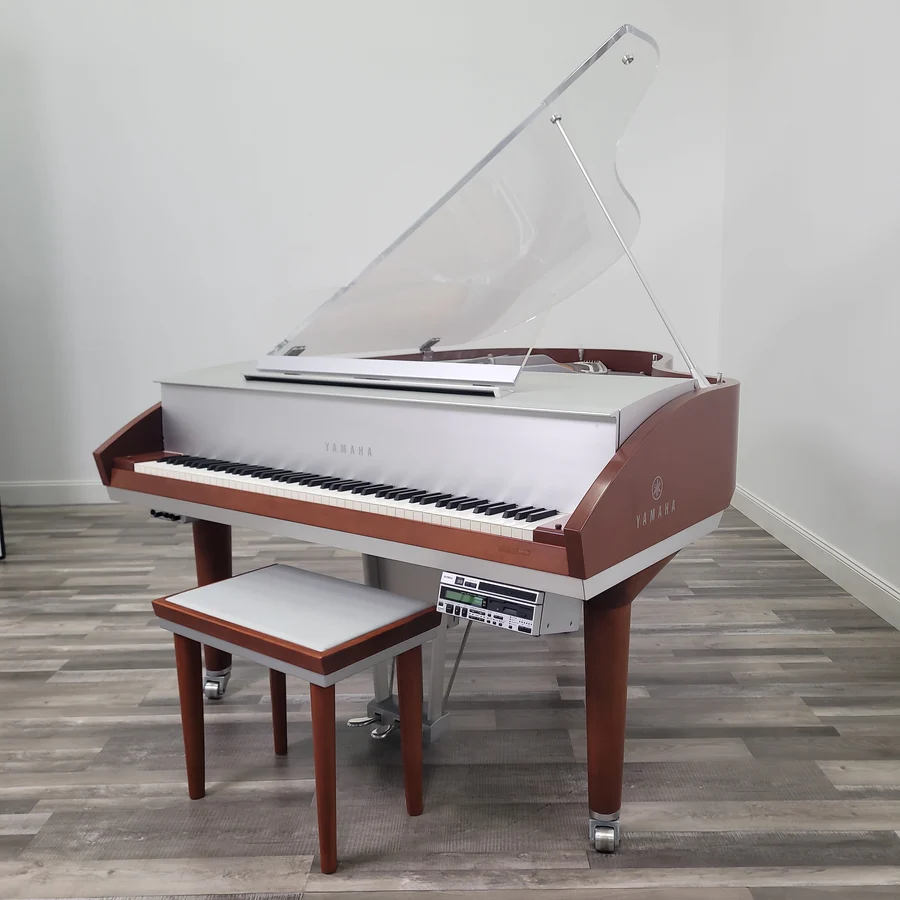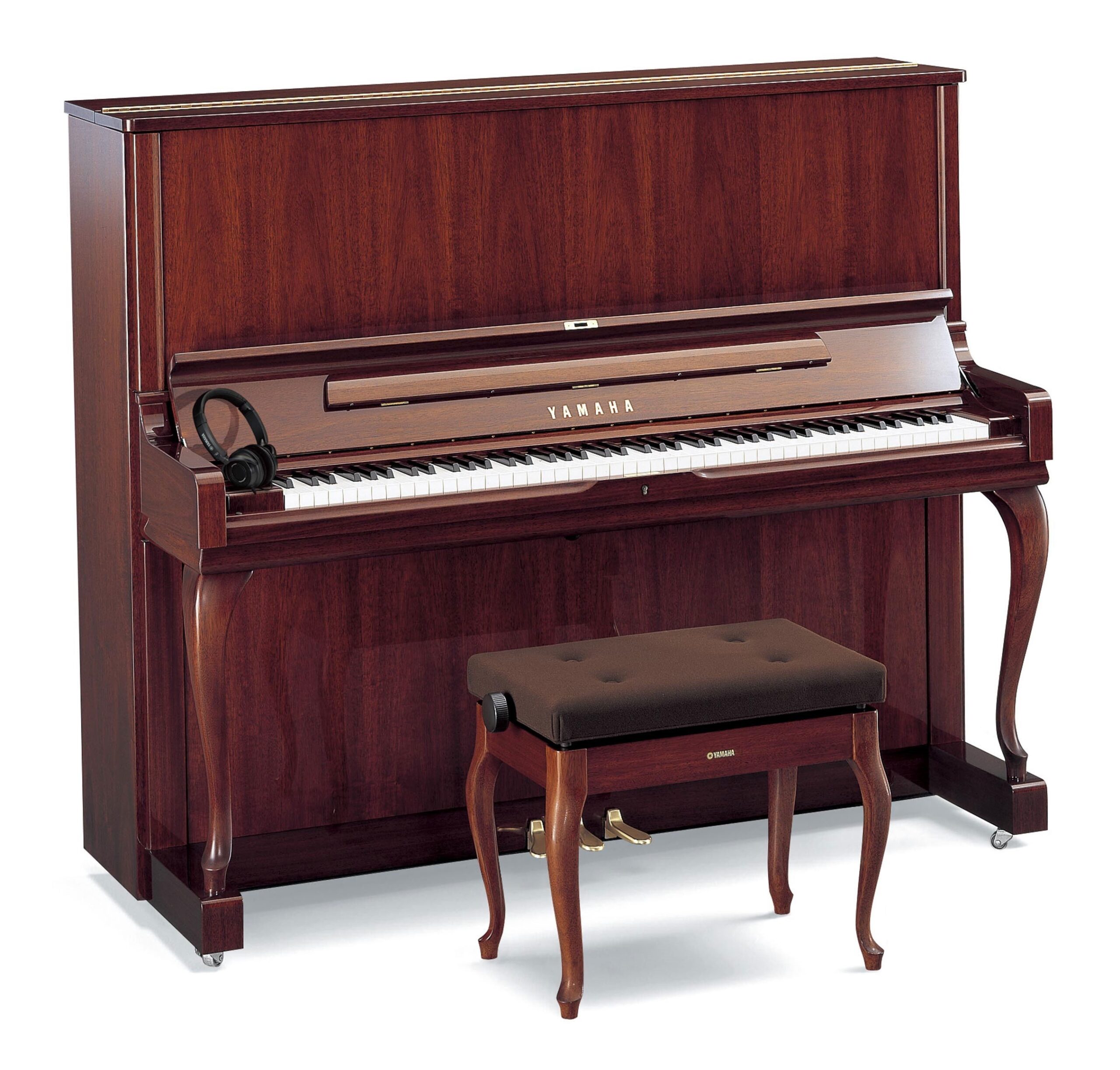Have you ever dreamed of owning a grand piano? That iconic instrument that graces the stages of concert halls and music studios is often seen as a symbol of success and sophistication. But how much does a grand piano cost, really? If you’re like me, just thinking about buying a grand piano can bring up feelings of uncertainty and confusion. What brand should I choose? How do I know if it’s worth the price tag? These are just some questions that may be running through your mind.
Well, fear not my fellow musician! In this article, we’ll take an in-depth look at everything you need to know about grand pianos – from their history and construction to the different types available in the market. Whether you’re considering purchasing one for yourself or simply curious about their pricing, this guide will give you all the information you need. Are you ready to learn more about these majestic instruments? Let’s begin our journey into the world of grand pianos!
So, how much is a grand piano in 2024?
The cost of a grand piano can vary greatly depending on the brand, size, and condition. A basic entry-level grand piano can start around $10,000 while high-end models can reach well over $100,000. However, it’s important to keep in mind that owning a grand piano involves more than just the initial purchase price.
Aside from the cost of the instrument itself, there are additional expenses such as tuning and maintenance fees which can add up over time. Additionally, if you plan on hiring professional movers to transport your piano or renting storage space for it when not in use, these costs should also be factored into your budget.
Furthermore, owning a grand piano requires proper care and upkeep to ensure its longevity and optimal performance. This includes regular tuning every 6-12 months as well as occasional repairs or replacements of parts.
Ultimately, purchasing a grand piano is an investment that goes beyond monetary value. It is a beautiful and timeless instrument that brings joy and enrichment to any home or performance space. So, while the price tag may seem daunting at first glance, with careful consideration and planning it is possible to own this iconic instrument without breaking the bank.
Understanding the Factors that Influence Grand Piano Prices
Playing the keys of a grand piano can feel like you’re touching a piece of history, strumming on the heartstrings of countless musicians who’ve come before. But what is it that influences these majestic instruments’ prices? Well, let’s unravel this little mystery.
The cost of a grand piano is greatly affected by factors such as brand, quality, and size. Just like designer clothes or luxury cars, brand names carry weight in the world of pianos too. Renowned brands like Steinway & Sons or Yamaha are known for their exceptional quality and sound, which often translates into higher grand piano prices.
The overall build and material quality play an integral role as well. High-quality wood and intricate craftsmanship take time and skill – both costly elements that drive up grand piano price points.
- Brand: Known brands typically charge more due to reputation.
- Craftsmanship: The level of detail in construction plays an important part.
- Materials: Premium materials used will increase grand piano cost.
- Maintenance History: A well-maintained instrument holds its value better over time.
- New vs Used: A new grand piano generally costs more than a used one due to depreciation values.
In terms of size, bigger isn’t always better but it definitely impacts grand piano price tag! Larger pianos have longer strings which provide richer tones eking out notes from lower octaves. Now aren’t those some soul-stirring sounds worth paying for?
Exploring Different Brands and Their Pricing for Grand Pianos
The world of grand pianos is filled with an array of diverse brands, each offering their unique take on this exquisite instrument. Some are steeped in rich history while others exude modern innovation; but they all share one common denominator – significant attention to craftsmanship.
In the luxury tier, we find renowned names such as Steinway & Sons and Bösendorfer. Steinway’s legendary grand pianos often come with a hefty price tag, ranging anywhere from $75,000 to over $150,000. Steinway piano price reflects not just the brand’s prestige but also its commitment to creating instruments that deliver superior tonal quality and unrivaled performance longevity. Similarly priced are Bösendorfer grands known for their exceptional resonance and wide color palette.
For those seeking quality at a more accessible rate, consider looking into brands like Yamaha, Kawai, or even the affordable yet reliable Pearl River.
- Yamaha’s grand pianos, renowned globally for their robust sound and impeccable craftsmanship can be purchased starting around $15,000.
- The Kawai range offers an appealing blend of fine performance features associated with much pricier instruments but has models starting at approximately $10k.
- Pearl River provides entry-level grands which generally start below $10K – excellent value if you’re dipping your toes into piano ownership without breaking the bank.
Grand piano shopping isn’t about finding the cheapest option—it’s about discovering what speaks most profoundly to your musical soul regardless of the name emblazoned across its lid.

Read also: is piano hard to learn
Insights into Pre-Owned Grand Pianos: Costs and Considerations
Owning a grand piano can be an exquisite experience, filled with sweet melodies and rich notes that fill your home or studio. However, new models often come with daunting price tags. That’s where pre-owned grand pianos step into limelight as a viable option to consider for both budget-conscious music enthusiasts and formal learners alike.
Firstly, we need to talk about the used grand piano price. A brand new grand piano can set you back anywhere from $5,000 up to $100,000 depending on factors such as brand reputation and size. On the other hand, pre-owned ones generally fall in the range of $3,000 to $50,000 again depending on their condition and brand lineage.
Here are some financial considerations when buying used grand pianos:
- Maintenance cost: Remember that like any musical instrument these also require regular tuning which may add extra costs over time.
- Restoration: If your chosen piece has been neglected for years then it might require extensive repairs leading to added expenses.
- Transportation: The sheer size of these majestic instruments means moving them is not easy or cheap.
Now let’s move onto non-financial factors impacting this decision:
- Seller Reputation:You must ensure that you’re purchasing from a reliable source who has adequately maintained the instrument.
- Tone Quality: Your ears have to love what they hear! So make sure you play it before making any decisions.
Opting for a pre-owned piano allows one not only potentially substantial savings but also gives access to vintage models holding historical value & charm simply unmatched by modern counterparts.
How to Assess the Value of a Grand Piano Before Purchase
In your quest to own a grand piano, it’s important not only to consider the aesthetics but also its worth. Determining the value of this investment piece involves several key steps that intertwine both objective and subjective factors—like carefully examining its condition, brand, age, size and sound quality. It’s akin to tasting fine wine; there are notes to identify and subtleties to savor.
Firstly, assess the exterior for any physical damage or signs of neglect—this includes checking for chipped keys or worn-out pedals. Cracks in the sounding board or bridges can dramatically affect a piano’s tone and should be addressed with utmost caution. After that, turn your attention inside: inspect the hammers for wear and see if they’re compacted from heavy use—a sign they might need replacing.
Next on our list:
- Brand: Reputable manufacturers like Steinway & Sons or Yamaha ensure high-quality craftsmanship which directly impacts value.
- Age: Fresher models generally perform better since pianos deteriorate over time. However, well-maintained vintage pieces could still command significant price tags.
- Size: A larger model often means more room for strings resulting in richer tones – making them more desirable (and pricey).
- Tone Quality: Last but certainly not least is auditioning its sound – play some notes across all octaves listening out for any tonal inconsistencies.
Remember that you’re investing in an instrument whose performance will grow alongside you as a musician—it’s crucial not just what you hear now but how it will continue delivering years down the line.
You may also like: refurbished yamaha piano
The Hidden Costs of Owning a Grand Piano: Maintenance and Tuning
When you’re the proud owner of a grand piano, there’s more to loving this magnificent instrument than just playing enchanting melodies on its polished ivory keys. Keeping your grand piano in tip-top shape involves regular tuning, cleaning and maintenance – costs that can often slide under the radar until they make a significant dent in your wallet.
Just like an exquisite luxury car requires consistent care, every grand piano needs professional tuning at least twice a year to keep it performing beautifully. A professional tuner adjusts each string so that all 88 keys sing together in perfect harmony. This is crucial for maintaining the quality of sound from your prized possession, but these services don’t come cheap. The price of piano tuning can range anywhere from $100-$200 per session depending on where you live and who you hire.
Maintenance is another hidden cost that many overlook when investing in their musical dreams. Grand pianos are sensitive to environmental changes such as humidity and temperature fluctuations which could lead to issues like wood warping or string corrosion over time. To prevent these potential problems, it’s necessary to have routine inspections by qualified technicians who may recommend specialized treatments or repairs – each with accompanying piano maintenance costs.
- Piano cleaning cost: Regular dusting prevents buildup inside the mechanism; averages about $75-$150.
- Piano regulation cost: Adjustment of mechanical parts for optimal performance; can set you back around $400-$600.
- Piano voice toning cost: Customizes volume levels between notes; typically runs about $200-$350.
So next time before getting mesmerized by the soulful symphony emanating from a grand piano at any store, remember these hidden grand piano upkeep costs are integral to owning one.
Conclusion: Making an Informed Decision on Purchasing a Grand Piano in 2024
Making an informed decision when buying a grand piano is paramount to ensure you get value for your money and a musical instrument that suits your needs. It’s not as simple as walking into a store, pointing at one, and saying ‘I’ll take that,’ but rather requires thoughtfulness on factors like budget, size, sound quality, and brand reputation.
To start with Your Budget. This is crucial because it determines the range of pianos you can consider. Grand pianos come in various price ranges – from affordable models for beginners to high-end ones used by professionals. Make sure to allocate funds for additional costs such as delivery fees or necessary piano tuning services post-purchase too.
Next up, The Size.
- If you have ample space available, then size wouldn’t be an issue; however,
- If room space is limited, it would be wise to opt for small baby grand models which are just as good but more compact in design.
The third factor is Sound Quality, which generally improves with the length of the piano’s strings – so bigger usually equals better sound output.
Lastly, The Brand Reputation. Buying from well-known manufacturers means getting top-notch customer service along with quality products.
Making such considerations ensures that the grand piano will provide not only beautiful music but also become an integral part of your home décor – serving both aesthetic and functional purposes brilliantly.

